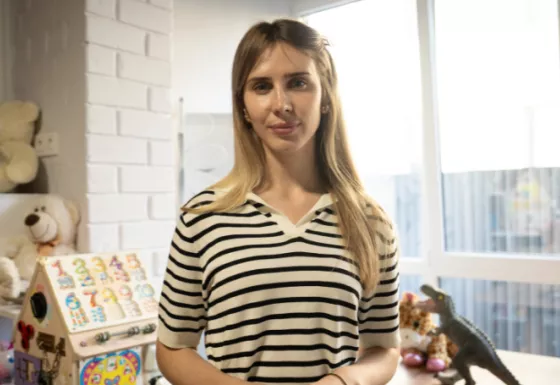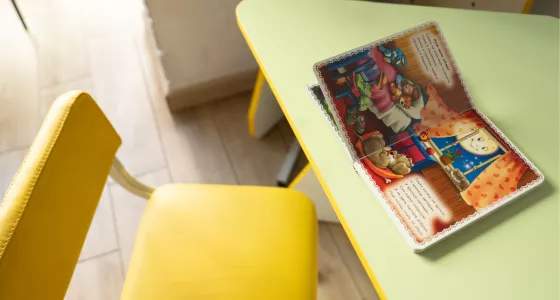I remember a boy who came here after living in occupation. In class, he spoke Russian because that’s what he was used to. When he lived there, he was bullied for speaking Ukrainian. Then, when he came back to Ukraine, he was scared to speak Russian because it had become his habit.
He was afraid. But once he saw that nobody here judged him for it, that nobody bullied him, he relaxed. He opened up, started talking more, and began to remember his Ukrainian. Now he’s reconnecting with his roots and rebuilding his Ukrainian identity.
I can tell you about the condition a child was in when she first arrived, and how she’s doing now. This girl had been through severe trauma. She lived under guardianship and was in a very fragile, borderline state. She was anxious and couldn’t sleep. She didn’t know how she’d be received in Ukraine and was very afraid.
Of course, she dreamed of coming here, but at the same time, she was extremely nervous and scared. When she arrived at Save Ukraine, she was really touched by how warmly she was welcomed. Now, after working with her, she’s stable. She smiles and already has lots of friends. She’s in such a positive place now—she has dreams, does what she loves, and enjoys herself. She plays sports, draws, and is really growing as a person.
It depends on the child, but recovery can take anywhere from three months to six months, depending on how much support they need. In my work with teenagers, I haven’t seen any relapses. I personally keep an eye on them, check in about how they’re feeling, and stay engaged in their lives."


